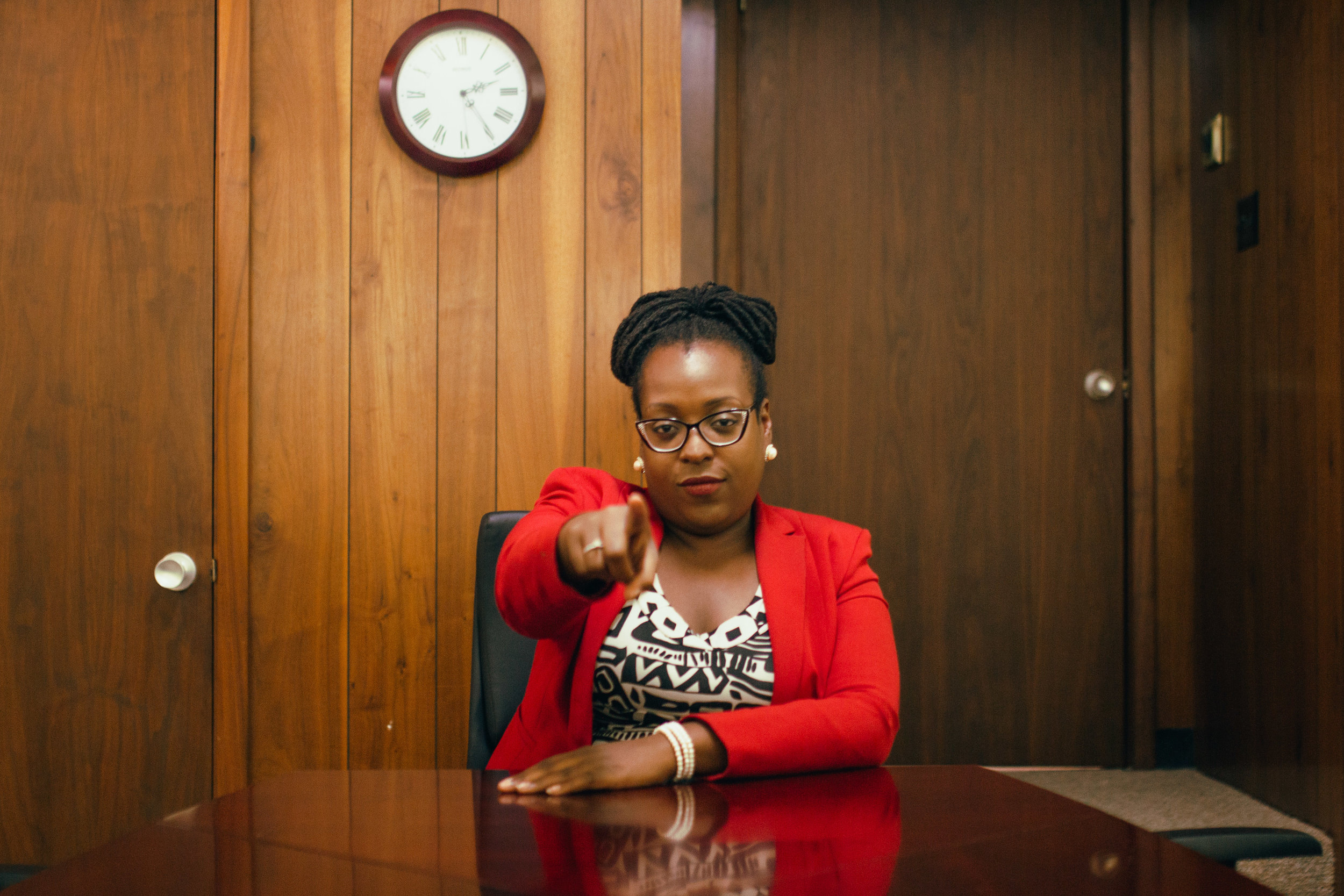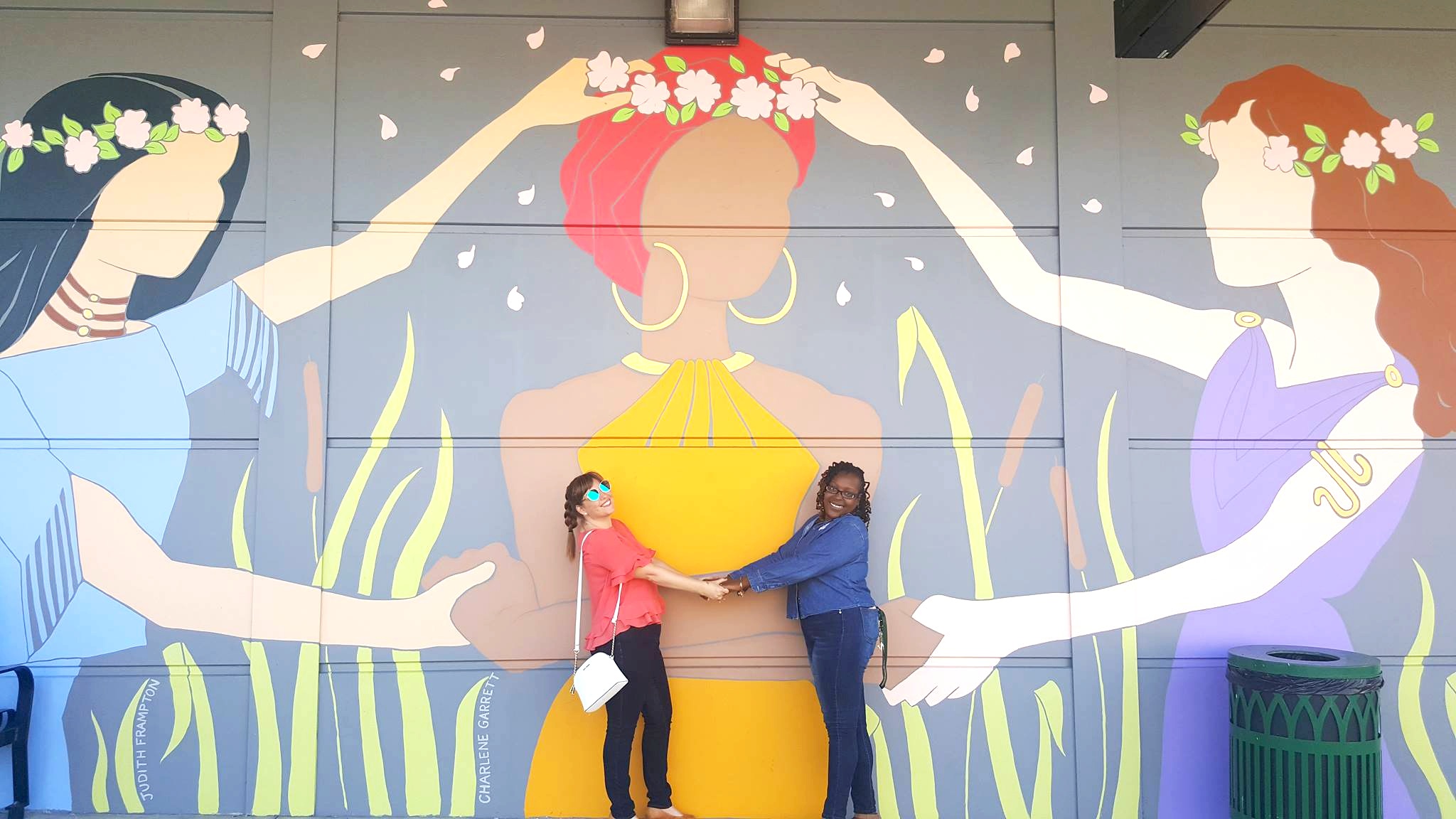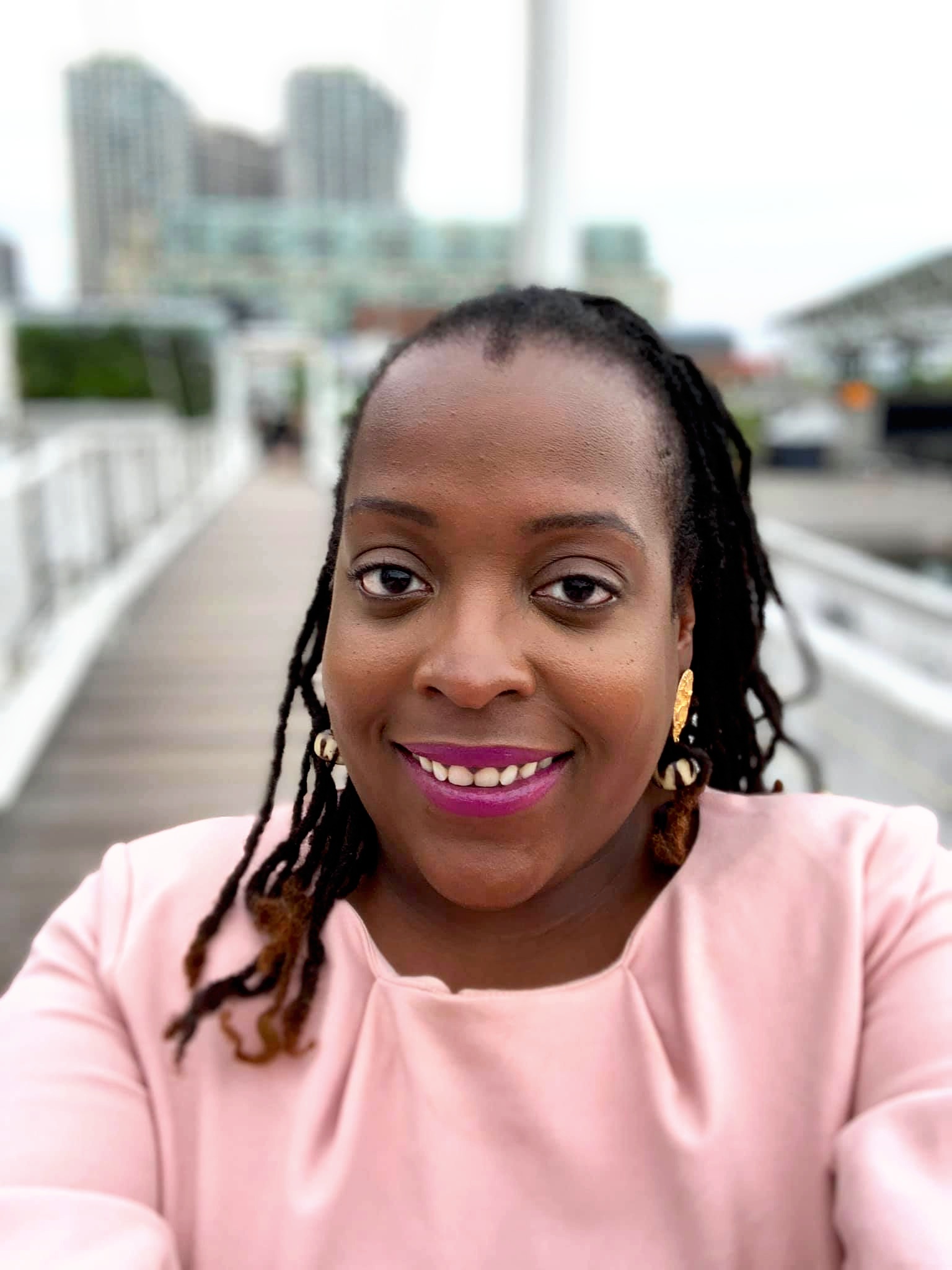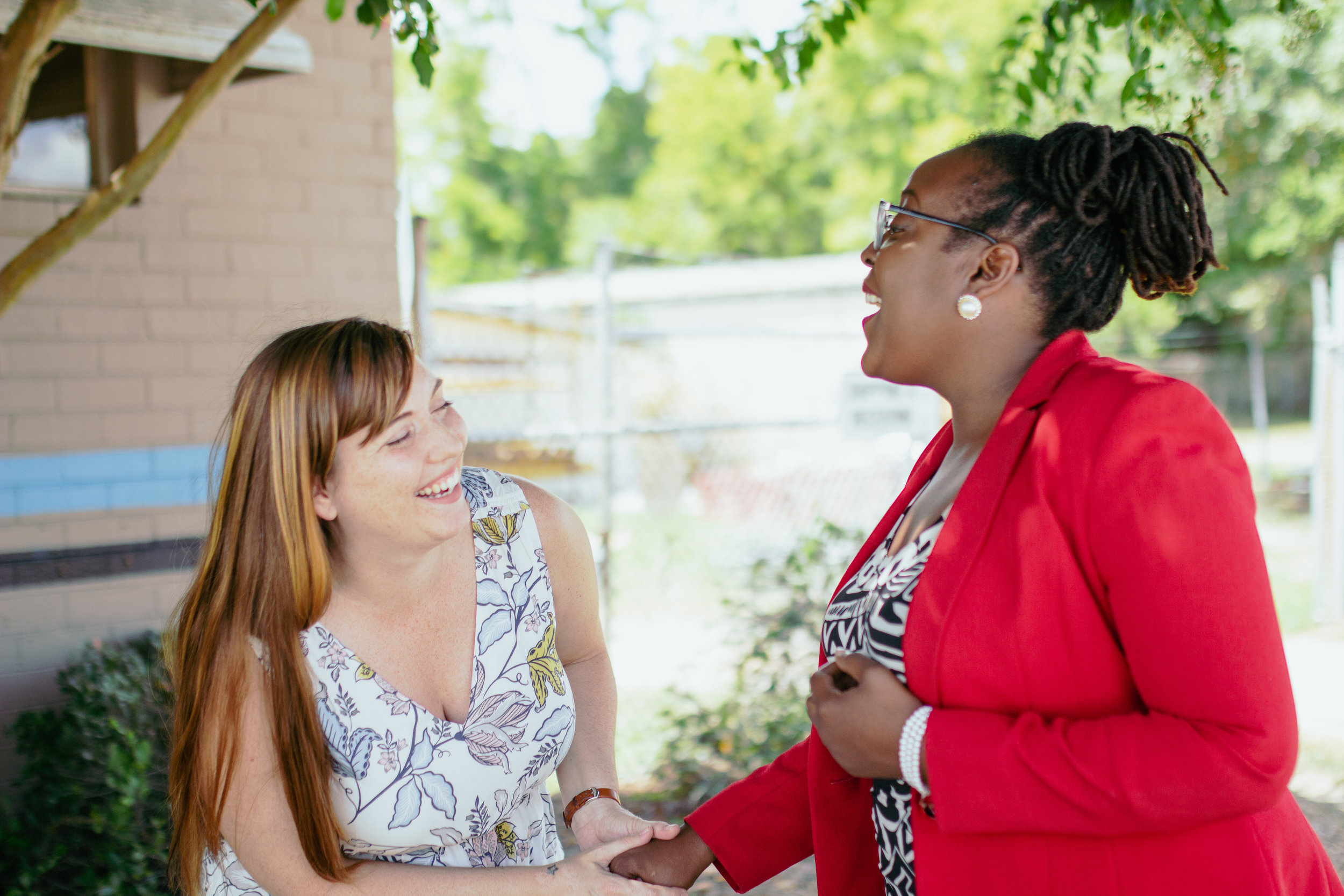Southern Siren
Nancy Cleveland
Every so often, if we are lucky, life occasions to bring us a soul that lights up every room with joy. Nancy Cleveland is such a person. When we met nearly a year and half ago, I had no premonition that we would become close friends or how many ways she would inspire me, creatively and professionally. She has an energy that is infectious and a drive that must be reckoned with. In the last year alone, Macon has been stirred to action because of her. She is nudging this community towards a place of healing and growth. I recently sat down with her for an interview about her connection to the south, her most recent project, and what it means to use your voice.
Allow me to introduce you to our first Siren of the Season, Nancy Cleveland.
Rachelle: Tell us about your connection to the South.
Nancy: Although I grew up in the Bronx, New York, I was born in Macon, GA so it is technically my hometown. I relocated back to Macon almost five years ago in October 2014.
R: When did you first feel Southern?
N: I still don't feel Southern. I am often reminded by the quiet streets, the vast landscape and trees, and questions like, "where are you from?” or "what accent is that?" that I'm not really from here. I was born here but my roots grew in New York so I consider myself a Georgia Peach by way of the Big Apple. I guess you could call me a Peachapple. Sounds like a Snapple drink, huh?
R: How did that feeling contribute to your investment in Macon?
N: I believe that the feeling of being an outsider-looking-in drives almost all of my projects and commitments. I want to bring a bit of home, well, home! I want the celebration of diversity and difference and culture to manifest here in Macon. I want technology to thrive and for people to walk outside and feel connected to their community. I want them to have sidewalks and buses and libraries! All the things that I grew up with in New York and took for granted until I moved back to my smaller hometown and realized those everyday luxuries where just that ... luxuries. Not amenities promised or guaranteed. To have access to great quality of life is still a fight in some places.
R: Tell us about your recent 880 Cities project.
N: My 880 Cities project is titled Head Space: Destigmatizing Mental Health. I think I'm going to change it though. I want the focus to be more on promoting Mental Wellness than the detection or prevention of some scary mental illness. I think my project will ultimately help me destigmatize mental illnesses without necessarily having to say that. I want ALL people from kids, adults, college students, seniors, homeless and more to have everyday access to mental wellness techniques. I want people to understand that therapy is not an expensive option intended only for the wealthy. I want to introduce alternative forms of treatment that people may have not considered before like essential oils or herbs. I also want people to take a break, sit down, relax, meditate, journal, whatever it is they need to feel a release. But I want them to incorporate it into their daily life in the same way stopping at a red light is second nature.
R: Why is this project a passion for you on a personal level?
N: My mother lived on the streets of Macon for over 30 years due to her struggle with mental illness and addiction. I was taken by DFCS when I was 2 months old and put into foster care until I was 3 years old and was adopted by my aunts who lived in New York. Had I not been rescued by such loving women who knows where I would have ended up...still in Macon...still in foster care. Everyone is not as lucky as I was and people need help coping with that. On the other end of things, coming back down to Macon and deciding to help my mom. To obtain adult legal guardianship and go through the burden of collecting evidence and testifying in front of a judge in a courtroom, not to mention, raising the money to pay for this almost $3,000 process was no small feat. I want to bring to Macon some of the resources I feel that my mother and I could have both benefited from had they been established while we were going through some difficult moments, even though her situation may have been worse than mine. We all go through things. We all need help sometimes. That's what drives me to complete this project so that people will know that there is help out there. They have options.
R: What does it mean to you to own your story?
N: Owning my story is accepting the reality of my situation and feeling a sense of freedom in sharing it. When I was younger I would tell people I was an orphan before I told them anything about my mom. As I got older I saw people celebrating their mothers. I felt the sting of not being able to celebrate my mom and I thought why not? I need to change that because that belief is not helping me go further in life. I need to celebrate her struggles, her triumphs, her addiction, her recovery, her journey. The good the bad and the ugly because celebrating her is celebrating myself! Loving her is loving me and if I don't start there where will I begin? So that is how I have chosen to own my story, so to speak.
R: Tell us a little bit about your journey of finding your voice.
N: Wow. Well as I mentioned earlier, I sometimes lied because I felt that would be more acceptable to others than my truth. Once I got to a point where I realized I had to accept my truth, my reality no matter how harsh or hurtful it may be I began to find my voice, my way of sharing my story. And surprisingly it’s usually with a lot of humor. I can now laugh at some of the things my mom has said or done or the disagreements we have had. I can tell my story from a positive perspective, noting the many ways I have been blessed and the way God has been with me throughout every step of my life even before I was aware of or could acknowledge his presence. Finding my voice became more about finding me and then feeling the freedom to share it in my own way.
R: Are there any influential southern female voices in your life?
N: You! Rachel Hollar. Lauren Mauldin. Erin Keller. Tonja Khabir. Kathryn Dennis. Julia Magda. Rhonda Khoplin. Melinda Moffet. Verda Colvin. Lynn Farmer. Lynn Murphey. Stephanie Howard. Sylvia McGee. Geneva West. Rachel Gambill. Elaine Lucas. Carol Johnson. Jana Byrd. Janice. Kaye. Brandi. My mothers...yes with an "s". Julia Wood. Monique Pitts-Taylor. Wendy Mullis. Dominique Lewis. Hazle Hamilton. Brittni Fletcher. The list can go on and on, but one thing remains true, since moving to Macon (which is one of my best decisions) I have encountered strong, beautiful, intelligent, powerful women who are leaders. Who care about our community. Who wake up everyday and take care of what they can. Who do their part to make Macon better. They are wives, mothers, friends, sisters and they each have supported and/or encouraged me every step of the way. I hate that I can't name every single woman I've met down here, but there have been plenty more and each of them have added to who I am and shown me who I'd like to become. A strong, southern belle. From the Bronx.
R: What do you wish people knew about southern womanhood?
N: I wish they knew that we embody the line from that movie, My Big Fat Greek Wedding, where she says, "The man may be the head of the household. But the woman is the neck, and she can turn the head whichever way she pleases." That is the epitome of southern womanhood and we are going to take over Macon and the South because a change gonna come.
Nancy Cleveland currently serves as the communications and development associate at the Community Foundation of Central Georgia. She and her dog Duchess enjoy scenic walks, exploring new local parks, and engaging with Macon’s night life.
To keep up with this fast-moving siren, follow her on Instagram. She is up to some amazing things and promises a life-time more to come.








